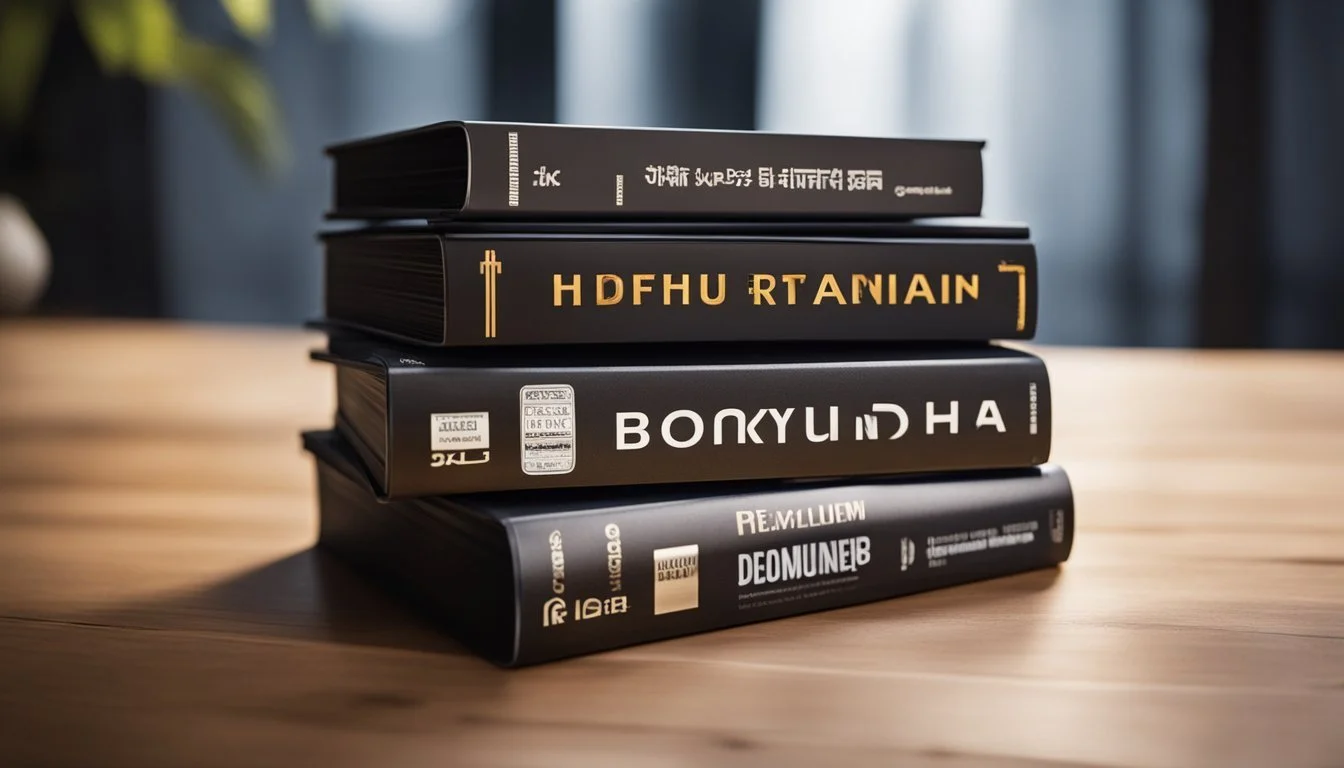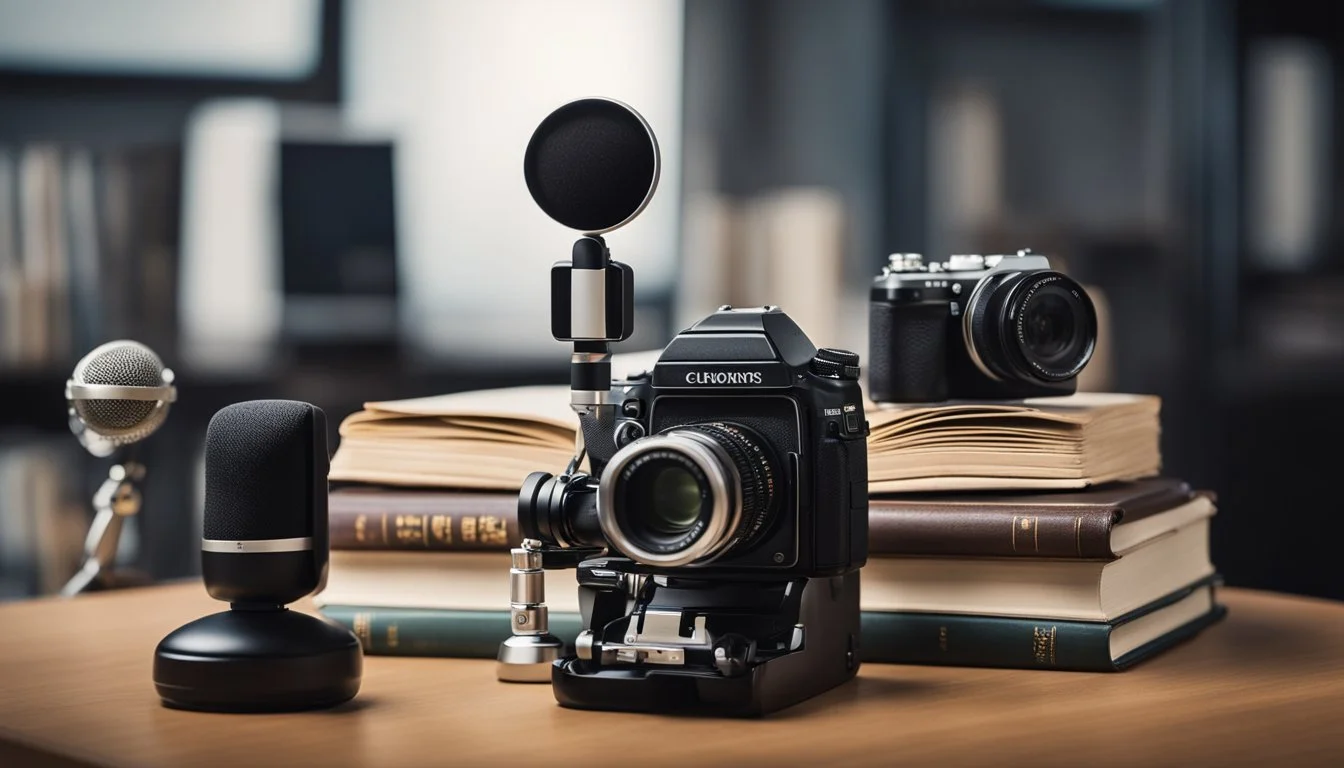5 Documentaries Featuring Interviews with Renowned Writers and Their Creative Processes
Documentaries offer a captivating window into the lives and minds of some of the world's most celebrated writers. For those who seek inspiration from literary giants or wish to understand the processes behind their iconic works, these films provide invaluable insights through intimate interviews and behind-the-scenes glimpses.
These documentaries not only explore the writers' careers but also delve into their personal experiences and philosophies. Viewers can gain a deeper appreciation for the authors' contributions to literature while seeing the human side of these literary luminaries.
1) "On Writing" by Stephen King (2000)
"On Writing" is a unique blend of memoir and professional guide by the celebrated author Stephen King. It offers a deep dive into King's journey as a writer, providing readers with insights into his personal experiences and the writing process.
The documentary is notable for its candid interviews with King, where he shares his thoughts on the craft of writing. He discusses the importance of discipline, the value of perseverance, and the necessity of continuously reading and writing. This provides a rare, personal glimpse into his methods and philosophies.
King's engaging storytelling style makes the documentary accessible not just to aspiring writers but to anyone interested in the creative process. The blend of autobiographical elements with practical writing advice offers a comprehensive look at what it takes to succeed as a writer.
For more information, visit the Wikipedia page.
2) "What I Talk About When I Talk About Running" by Haruki Murakami (2008)
Haruki Murakami is not only a celebrated novelist but also an avid long-distance runner. His book "What I Talk About When I Talk About Running" offers insights into his running journey alongside his writing life. This memoir includes reflections from Murakami as he trained for marathons, including the New York City Marathon.
Through his narrative, Murakami shares how running impacts his creativity and discipline as a writer. He meticulously documents his training routines and the meditative state he achieves while running. The book delves into the personal challenges and triumphs he faces, combining his passion for the sport with his literary career.
This memoir stands out for its introspective and honest portrayal of Murakami's dual commitments to both writing and running. It's a unique look at how these two aspects of his life intersect and influence each other.
For more information, visit Wikipedia.
3) "The Paris Review Interviews"
"The Paris Review Interviews" documentary series provides an unparalleled look into the minds of world-renowned writers. Known for their candid and insightful interviews, these documentaries capture the essence of writers' thoughts and processes.
One key feature of this series is the depth of conversation it offers. Viewers get a rare glimpse into the daily routines, inspirations, and struggles of literary figures. Each interview reveals nuanced perspectives on the craft of writing.
This series is celebrated for its historical significance, bringing together a vast array of authors spanning decades. Interviews with influential writers like E.M. Forster and others make this series a valuable resource for anyone interested in literature.
The production quality of these documentaries enhances the viewing experience. Carefully curated questions and a focus on key moments in each writer's career ensure that the content remains engaging and informative.
Overall, "The Paris Review Interviews" stands out for its dedication to literary excellence. It offers audiences a unique opportunity to understand the complexities of writing from those who have shaped the literary world.
For more information, visit "The Paris Review Interviews" on IMDb.
4) "Composed: A Memoir" by Rosanne Cash
"Composed: A Memoir" by Rosanne Cash is a reflective account of the artist's journey, blending her experiences in music with personal insights. The memoir delves into her life as the eldest daughter of Johnny Cash, her musical career, and her evolution as a writer.
Throughout her career, Cash has been recognized for her lyrical intelligence and musical excellence. Her memoir captures the depth of her reflections, narrating the challenges and triumphs she faced in both her personal and professional life.
Rosanne Cash's writing style is noted for its honesty and authenticity. In "Composed," she emphasizes the importance of staying true to the facts and to her memory, offering readers a candid look into her soul.
More information can be found on Wikipedia.
5) "Naked Lunch" by William S. Burroughs
William S. Burroughs' "Naked Lunch" is a seminal work in the Beat Generation canon and one of the most controversial books of the 20th century. Published in 1959, it is a non-linear narrative that explores the depths of addiction, identity, and the surreal landscapes of the human mind.
The book is notorious for its explicit content and was banned in several cities upon release. Its mix of reality and fantasy has made it a fascinating subject for literary critics and fans alike. Burroughs' stark prose and unique perspective offer an unfiltered look into the life of a drug addict.
"Naked Lunch" was adapted into a film in 1991, directed by David Cronenberg, which brings Burroughs' unsettling vision to the screen. The adaptation blends biographical elements of Burroughs' life with the book's fragmented narrative, creating a compelling and disturbing cinematic experience.
Interviews with Burroughs, included in various documentaries, provide deeper insights into his thought process, influences, and the societal issues he sought to critique. These interviews are invaluable for understanding the context of "Naked Lunch" and its impact on literature and culture.
For more information on the film and Burroughs' work, visit the Wikipedia page on "Naked Lunch."
Importance of Documentaries in Literary Studies
Documentaries provide a crucial platform for exploring the profound impact of writers and their work. They serve as valuable tools for both preserving literary history and granting audiences an intimate look into the minds of authors.
Preserving Literary History
Documentaries act as a preservation tool, capturing the essence of literary times and voices that might otherwise fade. They document the socio-political contexts in which writers produced their works, offering future generations a window into past literary landscapes.
Archival footage and interviews featured in documentaries not only capture writers' voices but also their personalities, adding depth to their literary contributions. Such visual records are invaluable for educational purposes and for maintaining the legacy of influential authors.
Utilizing documentaries, students and researchers can access authentic understandings of periods and movements, connecting literary works with their historical and cultural backgrounds. This preservation ensures that the rich heritage of literature remains accessible and engaging.
Insight into Authors' Perspectives
Documentaries often provide viewers with a profound insight into the personal and professional lives of writers. Through candid interviews and behind-the-scenes footage, audiences can gain a deeper understanding of the motivations, challenges, and cultural environments that shape an author's work.
These visual narratives reveal the creative processes and intellectual struggles that writers experience, offering a more nuanced appreciation of their craft. Understanding an author's perspective can enhance one's interpretation of their texts, bringing new dimensions to their literary analyses.
Moreover, interviews and personal anecdotes shared in these films can humanize writers, creating a connection between the audience and the author that goes beyond the written word. This connection can inspire readers, fostering a greater enthusiasm for literature and its study.
Techniques Used in Literary Documentaries
Literary documentaries employ various techniques to convey the depth and complexities of writers' lives and works. These methods often include interviews, archival footage, and critical analysis, each contributing to a comprehensive portrayal of the subject.
Interviewing Renowned Writers
Interviews with writers offer firsthand insights into their creative processes, inspirations, and personal lives. Filmmakers often choose diverse settings, such as the writers' homes or favorite cafes, to create a relaxed atmosphere.
This technique allows audiences to gain a personal understanding of the writer, beyond their published works. In "Toni Morrison: The Pieces I Am," Morrison's engaging personality is highlighted through candid interviews, revealing her passion and dedication to literature.
Utilizing Archival Footage
Archival footage is a crucial element in literary documentaries, providing historical context and a visual record of the writers' lives. This footage may include old interviews, public appearances, or home videos.
For instance, in the documentary about Hubert Selby Jr., archival footage is used to depict the significant moments and struggles of his life. This technique enriches the narrative by showing the evolution of the writer's career and persona over time.
Incorporating Critical Analysis
Critical analysis in documentaries helps viewers understand the broader impact of a writer's work. By featuring literary critics, scholars, and other writers, these segments offer different perspectives on the subject's contributions to literature and culture.
In "Words with Pictures," interviews with luminaries like James Baldwin and Noam Chomsky provide in-depth critiques and discussions about the writer's influence. This method not only contextualizes the work within literary history but also engages the audience in intellectual discourse.




